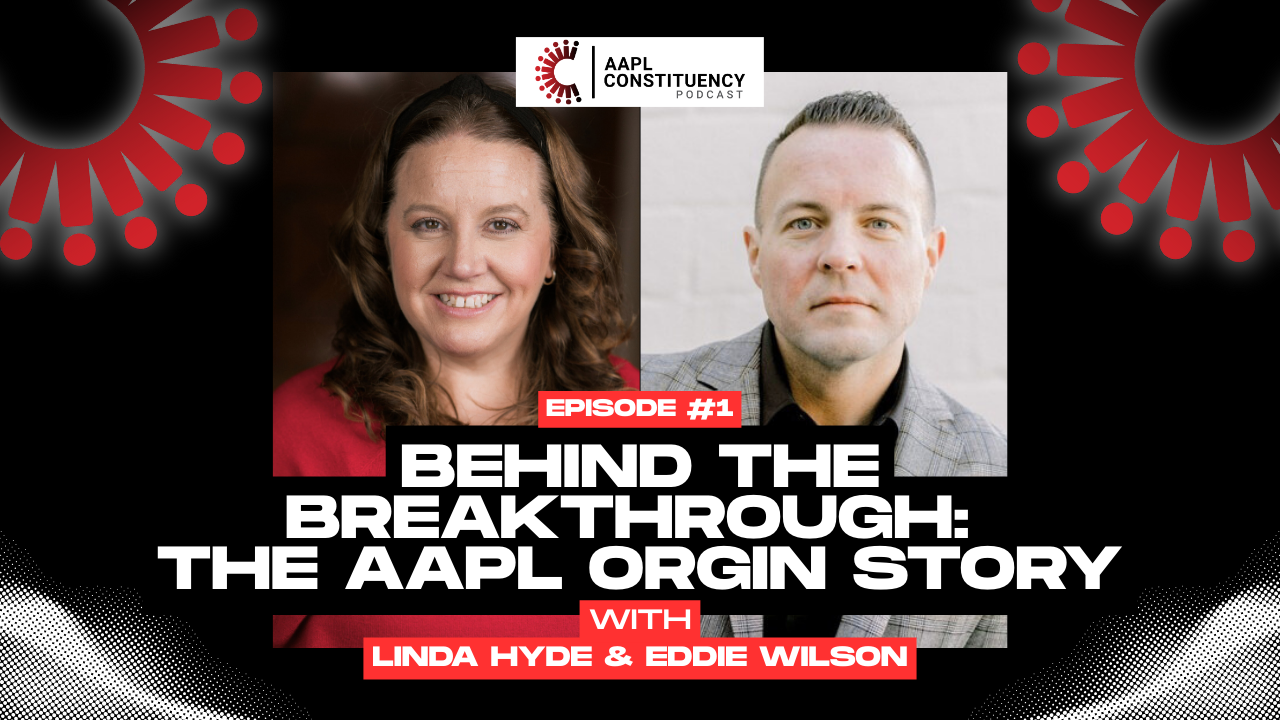Each quarter, we ask one of our committees to weigh in on a topic. These broad, open-ended questions allow for a wide range of responses to better explore the full scope of an issue.
This quarter, we asked our Ethics Advisory Committee to tell us what they think private lenders can (and should!) be doing to help prevent their customers from becoming the victims of scams.
Pay the Title Company
Mike Hanna, Managing Partner, Investmark Mortgage
The first thing private lenders can do is analyze the deal to see if it makes sense and meets the borrower’s expectations. This is especially critical when the deal is coming from a wholesale channel where values are commonly exaggerated, and the amount of work needed to complete the project is routinely minimized. The lender’s knowledge of the market and expertise in determining whether the scope of work is sufficient to complete the project will help the borrower decide whether they are on target or overpaying for the deal.
Second, private lenders can encourage borrowers to deposit all earnest money checks with the title company—and not issue them directly to the wholesaler/seller. If a transaction cannot close for some reason, the borrower will have an easier time getting their money back from a title company versus chasing down a seller that is not returning their calls.
Finally, if the transaction is moving forward, and the borrower is required to wire money to the title company, have them call the title company directly to verify that the wiring instructions they received are correct, and they are not a victim of an email phishing scam.
Increase Underwriting Due Diligence
Kellen Jones, President, Prospera
Private lenders fit into a niche category of a less-regulated financial sector, which is one powerful reason for AAPL to exist. Less regulation creates innovation and freedom to make loans that are more flexible for borrowers, but it can also allow bad actors to hurt others without consequence.
Within and beyond AAPL, private lenders can unite to protect the industry and learn from one another. Although some would generalize private lending as “hard money” and expect loan quality and processes to be minimal, foregoing a disciplined underwriting process opens the door to scams and fraud. Establishing a standard of due diligence and underwriting quality is one way to show scammers the private lending industry is a force to be reckoned with.
As information is received and analyzed, it must be verified beyond the rigid loan criteria to ensure a submission isn’t a mere façade for a scam. Borrowers are sometimes shocked to find a rogue lien has been filed, a document has been manipulated, or a criminal has misrepresented something. So, as good loans are made through quality underwriting and work flows, borrowers and others can be protected from the rampant scams and fraud that would otherwise poison the industry.
Education in Best Practices
Kevin Kim, Partner, Fortra Law
Emphasizing key components of the underwriting process typically uncovers major issues for any size real estate project. Lenders should follow best practices in their underwriting guidelines, because fraud the borrower suffers is likely to spill over to the lender. Sight visitations, seller due diligence, title reports and records, transaction histories, and the specifics of the purchase agreements should all be evaluated carefully.
Another key component is to evaluate the experience of the borrower. First-time borrowers are more likely to be targets for fraud. Inexperienced borrowers will need additional education and handholding, but this may create a stronger working relationship for the future.
Private lenders can also educate their borrowing base with their educational campaigns. This will not only attract new borrowers, but also inform them of common fraud tactics out in the marketplace.
Facts, Evidence, Logic
Susan Naftulin, Co-founder, Rehab Financial Group
Ultimately, it is the borrower’s responsibility to think critically when dealing with an unknown lender. The borrower needs to examine facts, evidence, and logic. A lender’s presentation to a potential borrower should be geared toward satisfying all three.
Rather than rely on websites and social media, a borrower should do their own due diligence and then back up their findings by having a live conversation with a lender they believe can meet their needs. All private lenders have a responsibility to back their words with real examples and tools that make borrowers feel safe.
Facts are universally true—they don’t just pertain to the individual lender but also to the organizations they belong to and the ethics, culture, and customer service commitments the lender subscribes to. Logical inferences can be backed up by common sense and common knowledge. Evidence consists of positive customer reviews, testimonials, and other complimentary internet impressions along with the borrower’s own feelings about their interactions with the lender. The lender should be upfront and forthright, but it is the borrower’s responsibility to evaluate the lender, based on facts, logic, and evidence! Trust needs to be earned, not assumed.
Limited Fees
Kemra Norsworthy
Principal Managing Partner, Bull Funding Corp
Keeping borrowers from being scammed requires openness and transparency. An ethical private lender will charge limited fees. Legitimate private lenders (in my experience) do not require an application fee. That is the No. 1 sign of a fraudulent lender pretender. A lender that funds deals does not build wealth collecting an application fee.
I believe this unethical practice hurts our industry. Once a borrower gets scammed, they are guided by that experience, and it makes trusting subsequent lenders tougher.
Upfront fees the borrower does need to pay after signing an LOI/term sheet are the appraisal and other third-party fees, which is standard practice in regular bank loans as well. Standards for private lending should not be expected to be less.
A borrower needs to do research. Look up the company. Look up the loan officer. Have conversations. Listen to your intuition. Be proactive, not reactive!
Clear Communication
Kendra Rommel, Regional Sales Director, Civic Financial Services
I prefer to use “investor” versus “borrower.” Although both terms relate to someone who borrows debt against collateral, there’s a subtle difference. “Borrower” feels closely related to a consumer-based request, whereas “investor” clearly refers to a business transaction for business purposes. As private money lenders, we have an obligation to create process, guidelines, and communications that prevent any partner from getting scammed (inside or outside the organization).
A few of the most noteworthy ways for preventing bad business interactions are (1) conducting an appraisal report through a third party, (2) running construction analysis on any projects that involve value-add, ranging from minimal construction all the way to ground up construction, and (3) a full underwrite on the preliminary and general. Each of these three steps tests the collateral, the investment strategy, and the people upon which the repayment and construction are contingent.
At any one of these points, it is our responsibility to communicate our findings and collectively make the best possible decision. When we make a choice to partner with an investor, broker, or lender we are choosing to protect each other.
Too Good to Be True?
Jeff Spiegel, Founder and Principal, Spiegel Accountancy Corp
There are warning signs to look for when seeking a loan to avoid scammers.
Important questions to ask include: Does the borrower know the lender or have a personal referral? How can a borrower tell whether a lender is legitimate?
It is important to research a potential lending company. In most states, anyone can do a business search on the Secretary of State website to check whether an entity exists and is in good standing. You should also confirm they are licensed with the National Mortgage Lending System (NMLS), if required to lend in that state. Request their NMLS number and verify it is active. If you are working with a loan officer, call the lending company to verify the officer represents it.
If the lender offers terms that sound too good to be true, be wary. Watch out for lenders offering 100% of the asset value or an unusually low interest rate. Private lenders generally will lend up to 75% of the underlying collateral, with interest rates ranging from 7% to 12%. Another red flag is large, upfront fees, especially if they are non-refundable.
Finally, scammers often try to pressure borrowers for an immediate answer. If the lender’s offer is for a limited time only, consider this a deal breaker.
Taking time to do due diligence before agreeing to a loan can help ensure you are working with a legitimate business.
Transparency Is Essential
Jeffrey Tesch, CEO, RCN Capital
When private lenders set transparent guidelines and openly communicate, borrowers can more easily identify unsavory practices.
For instance, many reputable lending companies speak out against charging a large application fee. Why? Because it’s common for scammers to pocket this fee and walk away. When reputable companies are vocal about scammers’ practices, borrowers become more aware of potential issues before they fall for them.
Another way private lenders can subvert scammers is to have a thorough underwriting process for all loan files. Having a set process for each loan not only protects lenders, it also ensures that any red flags are caught and brought to the borrower’s attention.
It’s not uncommon for a newer investor to come to us with a “great deal” on a property. A savvier investor recommended it to them, but the sales price seems high. Our underwriters will perform additional due diligence to see whether the price was artificially inflated by repeatedly flipping it to quickly increase the property’s value and ultimately pawn it off on an unsuspecting newbie.
By setting industry standards, adhering to best practices, and performing due diligence, private lenders can help prevent borrowers from being scammed.











Leave A Comment